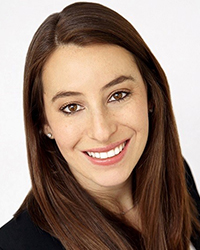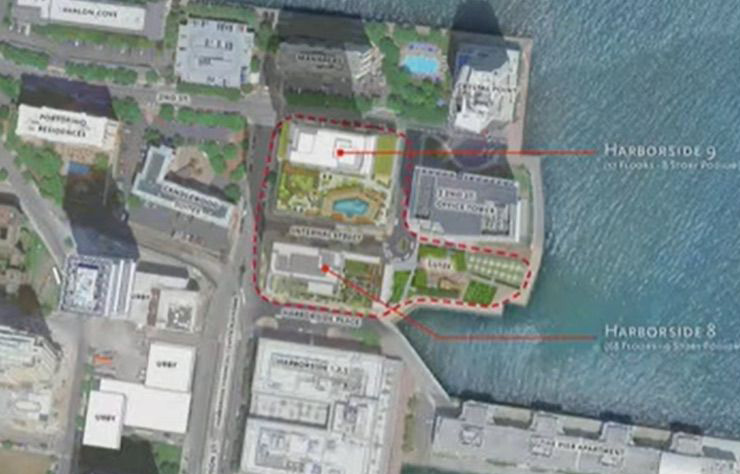Economic relief for non-profit organizations through the Paycheck Protection Program - by Jodi Warren

Capell Barnett Matalon & Schoenfeld LLP
In response to the 2020 Coronavirus pandemic, President Trump signed into law, a $2.2 trillion economic stimulus program called the Coronavirus Aid, Relief, and Economic Security Act (“Cares Act”). The Cares Act is designed to distribute money quickly to provide immediate financial relief to qualified individuals, small businesses, and other organizations. One of the most far-reaching sections of the Cares Act is the Paycheck Protection Program (“PPP”) which expands the economic relief the Small Business Administration (“SBA”) can offer and creates incentives to retain and pay employees during these uncertain and stressful times.
The Cares Act’s PPP commits $349 billion for – potentially forgivable – loans, by expanding loans provided by the SBA under Section 7(a) of the Small Business Act. PPP expands the recipients eligible for federally-backed loans, by including certain non-profit organizations as a qualified business. Small businesses, non-profit organizations, sole proprietorships, self-employed individuals, and independent contractors that meet the criteria and requirements of the program can apply for a loan through PPP. Specifically, a qualified non-profit organization is any entity: (a) exempt from federal income taxes under either Section 501(c)(3) and 501(c)(19) (veteran organizations) of the Internal Revenue Code (“Code”), and (b) with fewer than 500 employees, including individuals employed on a full-time, part-time, or other basis. This article will solely focus on how PPP applies to non-profit organizations exempt from taxes under 501(c)(3) of the Code with fewer than 500 employees (“Non-profit Organization”), including certain religious and charitable organizations.
The SBA will guarantee 100% of the loans issued by qualified banks, credit unions and other lenders previously authorized to issue loans under Section 7(a) of the SBA or recently designated by the Treasury Department. Through the PPP, eligible recipients can receive a loan up to $10 million with a fixed interest rate of one percent (1%). The loan amount is based on the Non-profit Organization’s payroll and will be the lesser of: (a) 2.5 times the average monthly payroll costs incurred for either a one-year period before the date on which the loan is made or the 2019 calendar year (as elected by the Non-profit Organization) and (b) $10 million. Specifically, “payroll” includes salaries, wages, commission, payroll support (paid vacation, sick, medical and family leave), group healthcare benefits (including insurance premiums), retirement benefits and the payment of state or local taxes assessed on compensation. However, payroll expenses exclude: (a) salaries for individual employees in excess of $100,000 annually (not including non-cash benefits), (b) payroll taxes, federal employment taxes and income taxes, (c) compensation for independent contractors and employees with a foreign principal residence, and (d) qualified wages for which a credit is permissible under another federal program (sick or family leave programs).
The repayment of the loan (principal and interest) will be deferred for six (6) months, however, interest will continue to accrue over this period. No personal guarantee is required, no collateral is needed to be pledged to secure the loan, no administration fee will be charged (although participating lenders may charge a fee) and there will be no prepayment penalties. In addition, the loan is nonrecourse (the lender has no claim against any member of a Non-profit Organization for non-payment), except if the proceeds are used for prohibited or illegal uses.
A PPP loan must be used for the following expenses:
(a) payroll costs (as previously defined),
(b) interest on mortgage obligations (not including prepayment or the payment of principal) or other debt obligations existing prior to February 15, 2020,
(c) rent under an enforceable lease agreement executed prior to February 15, 2020, and
(d) utility payments for which services began prior to February 15, 2020 (collectively, “Eligible Operation Expenses”).
A Non-profit Organization can apply for a loan through PPP from any existing SBA lender, federally insured depository institution, federally insured credit union, Farm Credit System institution or from additional lenders authorized by the Department of Treasury, by submitting a loan application and the required supplemental documents. In evaluating a potential borrower, the lending institution will only consider whether the Non-profit Organization: (a) was in operation on March 1, 2020 and (b) paid salaries and payroll taxes during that time. An eligible Non-profit Organization must make a good faith certification to the lending institution stating that: (i) the requested loan is necessary to support operations during the adverse economic conditions resulting from the COVID-19 pandemic, (ii) the funds will be used to retain employees and maintain payroll and (iii) the Non-profit Organization has not and will not receive another loan through the PPP (only one loan is permitted) between February 15, 2020 and December 31, 2020.
If a Non-profit Organization receives a loan through PPP, it is eligible for forgiveness (cancellation) of the indebtedness based on the amount spent on the Eligible Operation Expenses. Due to the high demand, it is anticipated that the SBA will require that 75% of the forgiven indebtedness be used for payroll over the eight (8) week period commencing upon receipt of the loan (“Eight Week Period”). Forgiveness of the loan is not automatic. The Non-profit Organization will need to submit a loan forgiveness application to the servicing lender. The lender must make a decision on the forgiveness of the loan within sixty (60) days from receipt of the forgiveness application.
The loan may be forgiven up to the principal amount, but the forgiven amount may be reduced if: (a) the Non-profit Organization decreases the number of employees during the Eight Week Period. The loan forgiveness reduction is based on the following equation:
the average number of full-time employees per month for the Eight Week Period divided by the average number of full-time employees per month from February 15, 2019 to June 30, 2019 or January 1, 2020 to February 29, 2020 (as such time period is elected by the Non-profit Organization).
(b) there is a reduction in eligible employee compensation in excess of 25% of such compensation paid during the most recent full quarter period prior to origination of the loan, (c) any of the proceeds of the loan are not used for the Eligible Operation Expenses (in accordance with the required proportions), or (d) the Non-profit Organization does not provide the lender with adequate records evidencing the use of the funds; thus, it is crucial for Non-profit Organizations to keep track of the funds. It is important to note that if a Non-profit Organization restores the reduction in employees and/or compensation by June 30, 2020, the forgiven indebtedness will not be decreased pursuant to (a) and (b) above.
Any portion of the loan that is not forgiven is subject to a two year maturity date and will continue to operate in accordance with the loan terms agreed upon by the Non-profit Organization and the lender. Last, the Cares Act provides that the forgiven debt under the PPP is excluded from gross income for purposes of the Code of 1986. Therefore, unlike other cancelled debt, the Non-profit Organization will not be required to pay income tax on the forgiven debt.
Non-profit Organizations and small businesses can apply for the SBA loans starting April 3, 2020, and independent contractors and self-employed individuals can apply starting April 10, 2020. The PPP will continue until June 30, 2020, however Non-profit Organizations should apply as soon as funds become available because there will likely be a high volume of applicants and there is a finite amount of funds allocated to the program.
Below are a few key resources to assist Non-Profit Organizations through the application process:
• Fact Sheet: https://home.treasury.gov/system/files/136/PPP--Fact-Sheet.pdf
• Sample Application: https://www.sba.gov/sites/default/files/2020-04/PPP%20Borrower%20Application%20Form_0.pdf
• 100 Most Active SBA 7(a) Lenders: https://www.sba.gov/sites/default/files/2020-04/PPP%20Borrower%20Application%20Form.pdf
Disclaimer:
The information in this article is continuously changing and being updated. This article is for informational purposes only and does not constitute legal or business advice. Each entity, based on its specific circumstances, must determine whether to seek and secure an SBA loan. In no way is Capell Barnett Matalon & Schoenfeld LLP advising that it is appropriate for all entities to seek such loans. If your religious corporation or non-profit organization requires assistance, please contact Jodi Warren, Esq. [email protected]
Jodi Warren, Esq., is with Capell Barnett Matalon & Schoenfeld LLP, New York, N.Y.
© 2020 Capell Barnett Matalon & Schoenfeld LLP. All rights reserved. Attorney advertising.
Berger and Koicim of Marcus & Millichap sell 17-unit multi-family for $8.8 million


AI comes to public relations, but be cautious, experts say - by Harry Zlokower

Lasting effects of eminent domain on commercial development - by Sebastian Jablonski

Behind the post: Why reels, stories, and shorts work for CRE (and how to use them) - by Kimberly Zar Bloorian









.jpg)

.gif)